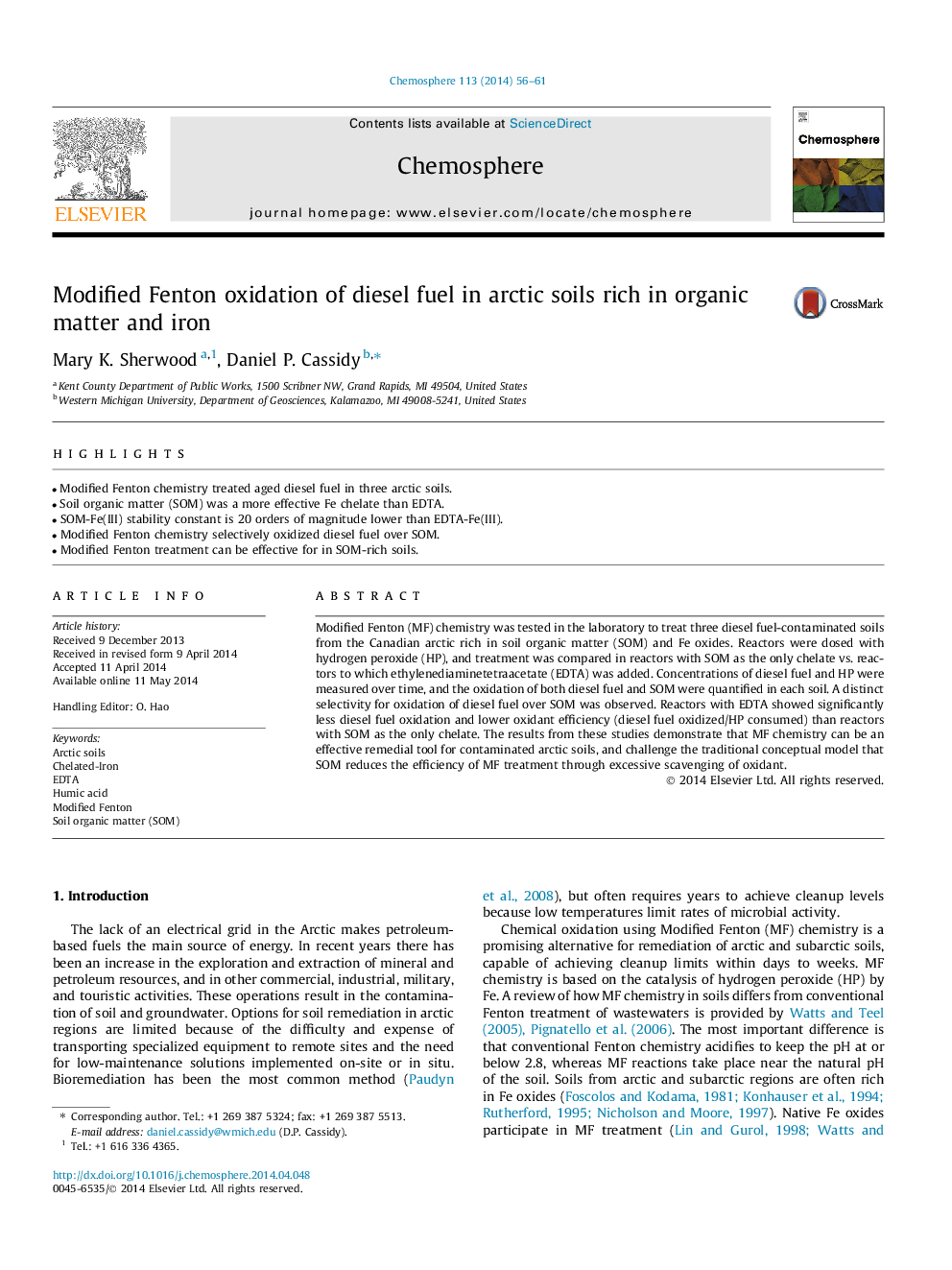| Article ID | Journal | Published Year | Pages | File Type |
|---|---|---|---|---|
| 4408751 | Chemosphere | 2014 | 6 Pages |
•Modified Fenton chemistry treated aged diesel fuel in three arctic soils.•Soil organic matter (SOM) was a more effective Fe chelate than EDTA.•SOM-Fe(III) stability constant is 20 orders of magnitude lower than EDTA-Fe(III).•Modified Fenton chemistry selectively oxidized diesel fuel over SOM.•Modified Fenton treatment can be effective for in SOM-rich soils.
Modified Fenton (MF) chemistry was tested in the laboratory to treat three diesel fuel-contaminated soils from the Canadian arctic rich in soil organic matter (SOM) and Fe oxides. Reactors were dosed with hydrogen peroxide (HP), and treatment was compared in reactors with SOM as the only chelate vs. reactors to which ethylenediaminetetraacetate (EDTA) was added. Concentrations of diesel fuel and HP were measured over time, and the oxidation of both diesel fuel and SOM were quantified in each soil. A distinct selectivity for oxidation of diesel fuel over SOM was observed. Reactors with EDTA showed significantly less diesel fuel oxidation and lower oxidant efficiency (diesel fuel oxidized/HP consumed) than reactors with SOM as the only chelate. The results from these studies demonstrate that MF chemistry can be an effective remedial tool for contaminated arctic soils, and challenge the traditional conceptual model that SOM reduces the efficiency of MF treatment through excessive scavenging of oxidant.
